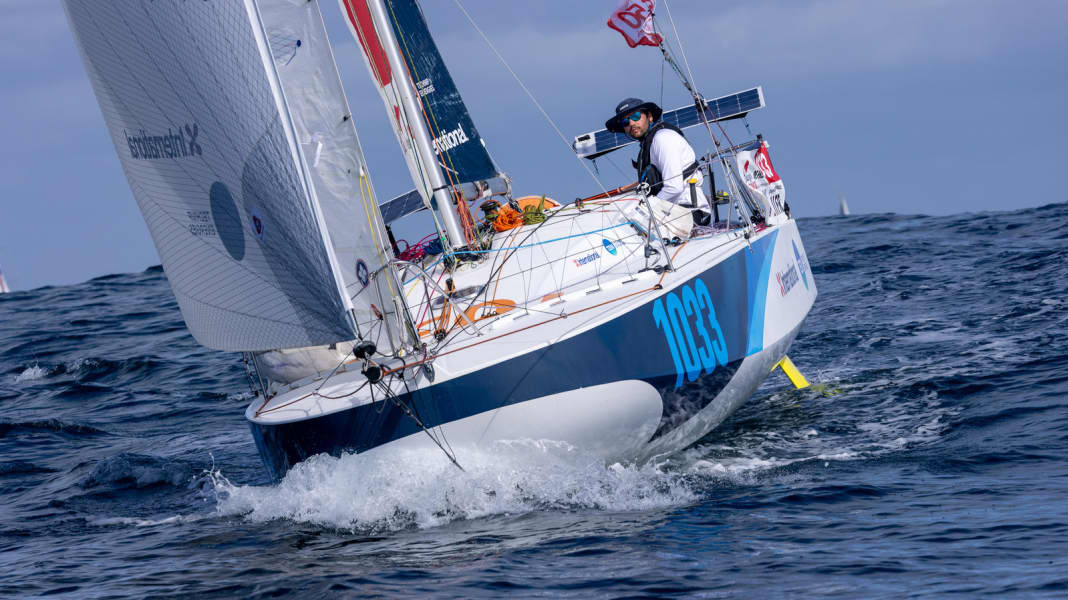
It's a completely different picture on the tracker at the Mini-Transat than two days ago: among others, the Swiss Felix Oberle sailed from 50th place 200 nautical miles behind to second place and is now fighting for the top spot. Hugues de Prémare, one of his fellow competitors in the south, even surpassed this in the night from Monday to Tuesday. With his production Mini, he not only managed to set the record for his class, but also for the prototypes. Pierre Le Roy, the 2021 Transat winner, set this record last year in Les Sables - Les Açores - Les Sables: 308 nautical miles. De Prémare not only narrowly beat the record, but also topped it up to an impressive 317.25 nautical miles, which corresponds to an average speed of 13.22 knots. He is currently in sixth place, up from 55th place two days ago, and is expected to make up further ground.
Like Oberle and the entire southern fleet, he had previously had the right instinct and stubbornly stayed the course, even though the gap grew ever larger. Now the different routes are mixing up again. The current top three all had different approaches. The Italian Luca Rosetti is still in the lead, having taken over from the Belgian Peter Cools on Wednesday, who has now slipped to 15th place. Rosetti, who currently has a lead of 17 nautical miles, chose a clear northern strategy, but not quite as radical as Cools did. In second place is Felix Oberle, who is the clear winner of the southern group. And in third place is Justin Baradat, a sailor from the centre, who was able to score points thanks to the direct distance when the entire field benefited from the trade winds.
La Boulangère Mini Transat:Winner of the first stage at the Protos back at the front
However, this was by no means equally strong everywhere: "The trade winds along the coast of Africa were actually stronger than elsewhere," explains Christian Dumard, the race's weather consultant. However, a turn to the east meant that the Minis in the north won again. The differences between the series boats in particular were sometimes enormous, as the field was split more than 400 nautical miles in a north-south direction. This gap is now narrowing again due to the course. This is because the soloists have to leave the next waypoint, which is located at 25° north and 27° west, on their starboard side.
In the Protos, the lead is now firmly in the hands of the south. It is Frederico Waksman who is fighting for the lead and currently has the highest average speed in the field. However, the fleet has never really gone that far out in front and has always tended to stay on the direct course or slightly south of it. Carlos Manera, the Spanish winner of the first stage, is currently in third place. Co-favourite Carolin Boule from France managed to make up some places and is currently in 18th position.
UFO rams hole in Mini - Pozzoli loses nine places
One place behind is her compatriot Robinson Pozzoli, who was hit hard. Literally: a UFO had rammed a hole in the fuselage of his Protos, but he was able to close it afterwards. However, the damage forced him to laminate again and he has now lost nine places. In addition, his port rudder had failed, but he continued his journey towards Guadeloupe.
In the series minis, it is Peter Gibbons who informed the race organisers yesterday evening that he wanted to start Cape Verde because of a broken rudder blade. The American hopes to complete the repair as soon as possible and then continue the race.

